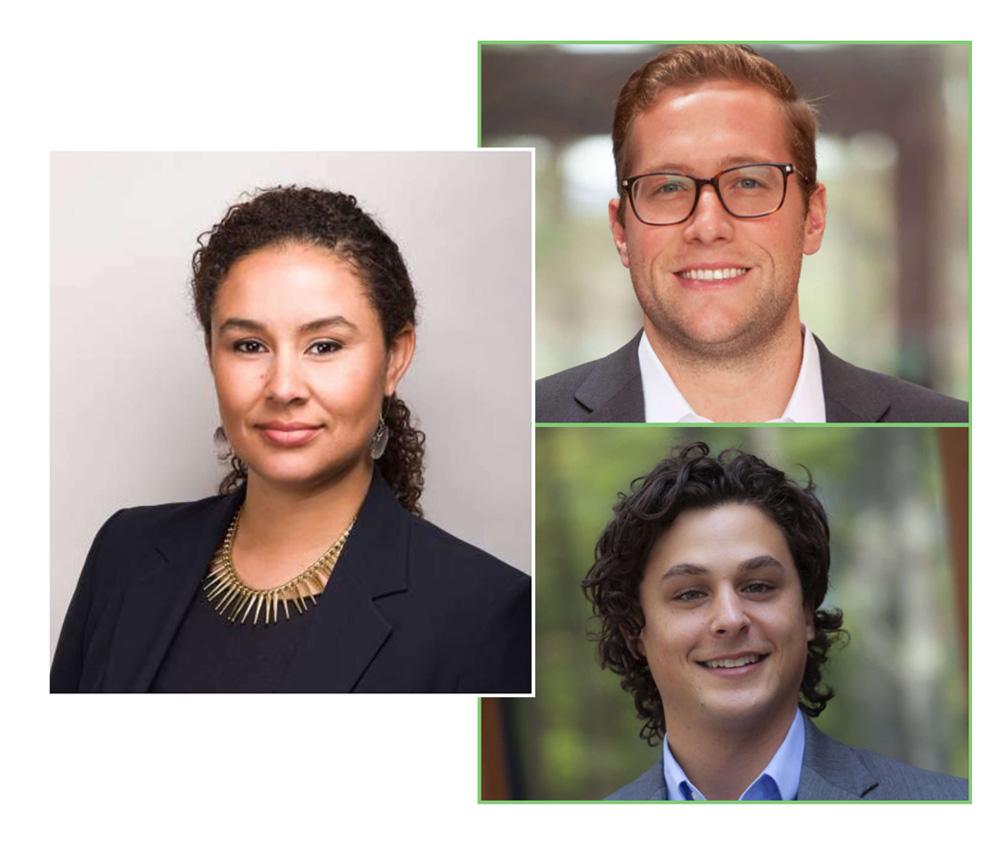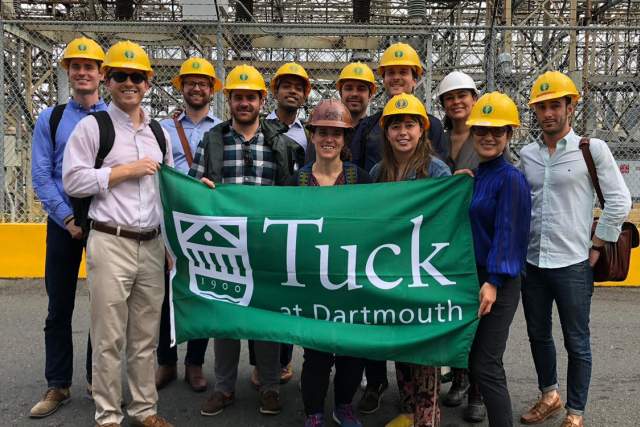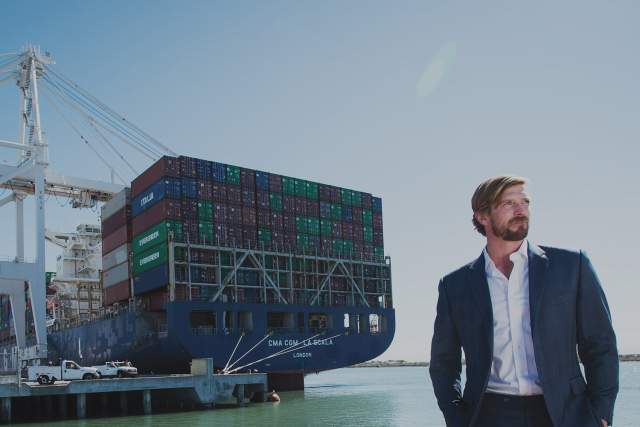As the climate crisis grows ever direr, corporate climate accountability efforts have moved from a niche concern to the mainstream. Tuck’s students and alumni have been at the forefront of that shift, due in part to resources like the Revers Center for Energy, Sustainability and Innovation and student efforts like the Tuck Sustains club.
Now, thanks to a powerful synergy between student leaders and the Revers Center and support from Dartmouth’s Arthur J. Irving Institute for Energy and Society, Tuck is headed toward an even more sustainable future.

Working with April Salas, T’21s Mark Orloff and Colin Cinder started TCOP as part of a Revers Center fellowship project.
Identifying a Shared Opportunity
When April Salas, Executive Director of the Revers Center for Energy, Sustainability and Innovation, approached 2020-21 Revers Center Fellows Mark Orloff T’21 and Colin Cinder T’21 and proposed a carbon offset program as their fellowship project, they jumped at the idea.
“It’s something that’s been on our priority list for years,” explains Salas. “These two students came in with expertise and interest and were willing to drive it, which we’ve found is critical to ensuring success.”
Carbon offset programs allow organizations to “offset” their emissions by investing in renewable resources, emissions reduction technology, and carbon capture and storage. Organizations can purchase credits through intermediary organizations that fund climate-friendly projects or invest in projects directly.
Building a Plan and Gaining Buy-In
With the backing and support of the Revers Center, Orloff and Cinder launched a comprehensive market research process and surveyed students to gather ideas and interest.
The result? The Tuck Carbon Offset Program (TCOP), an ambitious initiative that aims to offset Tuck’s emissions. The project is designed to scale over the next several years by shifting from purchasing carbon offset credits to funding emissions-reducing projects in the Upper Valley and around the world.
To ensure continuity, the team worked quickly to develop a formal structure for TCOP. While Revers Center leadership and an advisory committee provide strategic guidance, the program is entirely student-directed. Year-long co-director positions are filled by Revers Center fellows and Tuck Sustains representatives, as well as a student from outside of the Tuck energy community to ensure diverse perspectives.
That decision, Salas notes, was intentional. “We want the program to resonate with the everyday student and leader. That’s how the industry is evolving. Maybe energy will be core to a graduate’s work, or maybe it will be tangential, but they will have the opportunity to influence their peers and to react to consumer demand for sustainability.”
Funding the Future
After a baseline assessment in spring 2021, the project launched over the summer with $5,000 seed funding from the Revers Center, matched by a $5,000 grant from the Irving Institute. The TCOP team purchased carbon offsets equivalent to 10 percent of Tuck’s annual carbon emissions through a partnership with industry leader Cool Effect to kick off their investments.
I hope to use what I have learned to help businesses reduce their environmental impact and address sustainability concerns.
Mark Orloff T’21
As Salas explains, “One of the charges for the student leaders is creating a sustainable, self-funded business plan and model for this program, without increasing the cost of Tuck.” While TCOP leaders continue to explore funding models, initial sensitivity analysis has shown willingness from Tuck students to offset their travel and activities voluntarily.
Andrew Wood T’22, one of TCOP’s 2021-22 co-directors, says, “Ideally, each cohort will build on TCOP’s capabilities until Tuck has a comprehensive grasp of its carbon footprint and a clear roadmap to carbon neutrality.” And the ambition doesn’t end there. Ultimately, TCOP leaders hope to expand the program to the entire Dartmouth community.
Experiential Learning for an Evolving Landscape

T’22s Barbara Demidchuk and Andrew Wood are the TCOP co-directors for 2021-22.
As Cinder and Orloff saw firsthand, TCOP presents a unique opportunity to learn the ins and outs of corporate sustainability.
“Coming into Tuck, I lacked a background in climate and sustainability,” says Cinder. He credits the program with giving him “much-needed climate-related work experience” to bring to his role as a consultant at Bain & Company.
Orloff, also at Bain & Company, agrees. “I hope to use what I have learned to help businesses reduce their environmental impact and address sustainability concerns.”
In the eyes of 2021-22 TCOP co-director Barbara Demidchuk T‘22, the program is a win-win for students and the environment. “It is a powerful tool to better understand the risks and opportunities that will arise from the new carbon economy and the sustainability revolution,” she says. “My goal is to raise environmental awareness in the community and to let prospective students know that Tuck is a great school to pursue a career in this space.”

